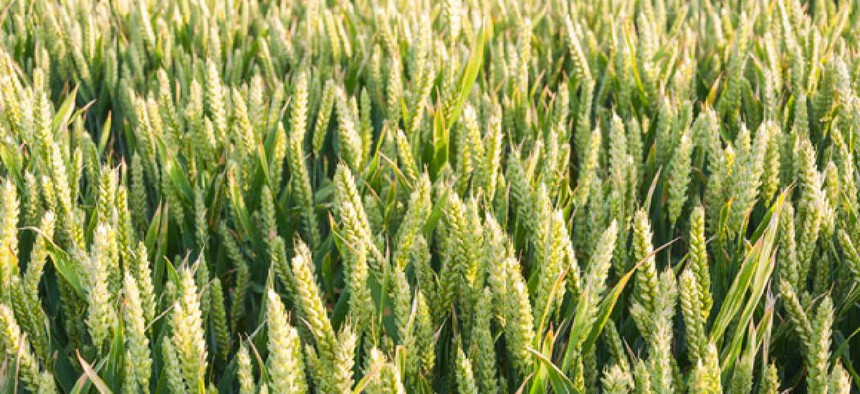G-8 Seeks Apps for Agriculture

Ruud Morijn Photographer/Shutterstock.com
The international group hopes open data sharing can produce smarter farming and better crops.
The U.S. government launched a new agriculture data community on Monday during a special Group of 8 conference in Washington aimed at using open data to produce better crops and more efficient markets.
The two day G-8 Conference is focused on better sharing of information that can improve agricultural performance internationally, ranging from data about plants’ genetic makeup to information about climate change and the computer code that underlies new farming technology.
The conference is also aimed at spurring entrepreneurs to use open agriculture data to develop Web and mobile applications for farmers and researchers.
Officials hope sharing more agricultural data will have the same effect as opening up weather and Global Positioning System data, which produced billion dollar industries.
The agriculture community will join other data sharing communities on the U.S. government information repository Data.gov on topics such as energy, manufacturing and oceans.
“This is one very important step in President Obama’s effort to ensure the direct results of our scientific research are available for the public and industry and the entire scientific community,” Agriculture Secretary Tom Vilsack said. “It will create a data ecosystem to fuel innovation and meet agricultural challenges we all face.”
The G-8 is composed of representatives from eight of the world’s wealthiest nations.
As an example of agriculture fueled by data sharing, Microsoft founder and global development advocate Bill Gates cited the Next Generation Cassava Breeding project, which aims to significantly reduce the amount of time it takes to bring new breeds of the cassava plant to market. The project would, in turn, drastically improve yields for African farmers.
Vilsack cited mobile apps used by Kenyan farmers such as the State Department-sponsored iCow, which helps farmers determine when their cows are most fertile and allows them to track metrics such as daily milk production.
One of the greatest challenges for agriculture innovators and data collectors is the lack of solid metrics from developing nations in Africa and elsewhere, said World Bank Vice President Rachel Kyte. Just one in four African countries publishes basic national crop data, she said.






